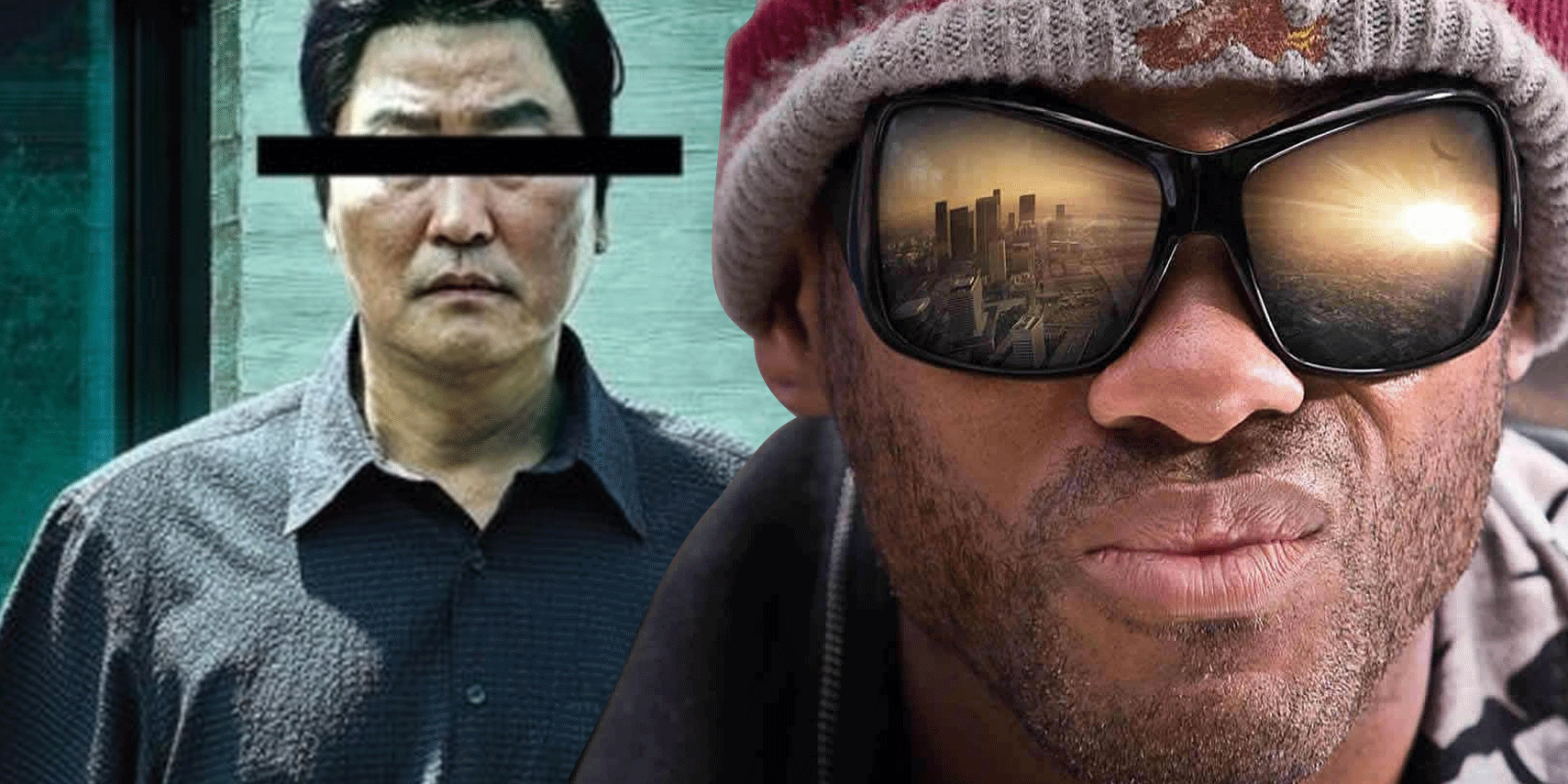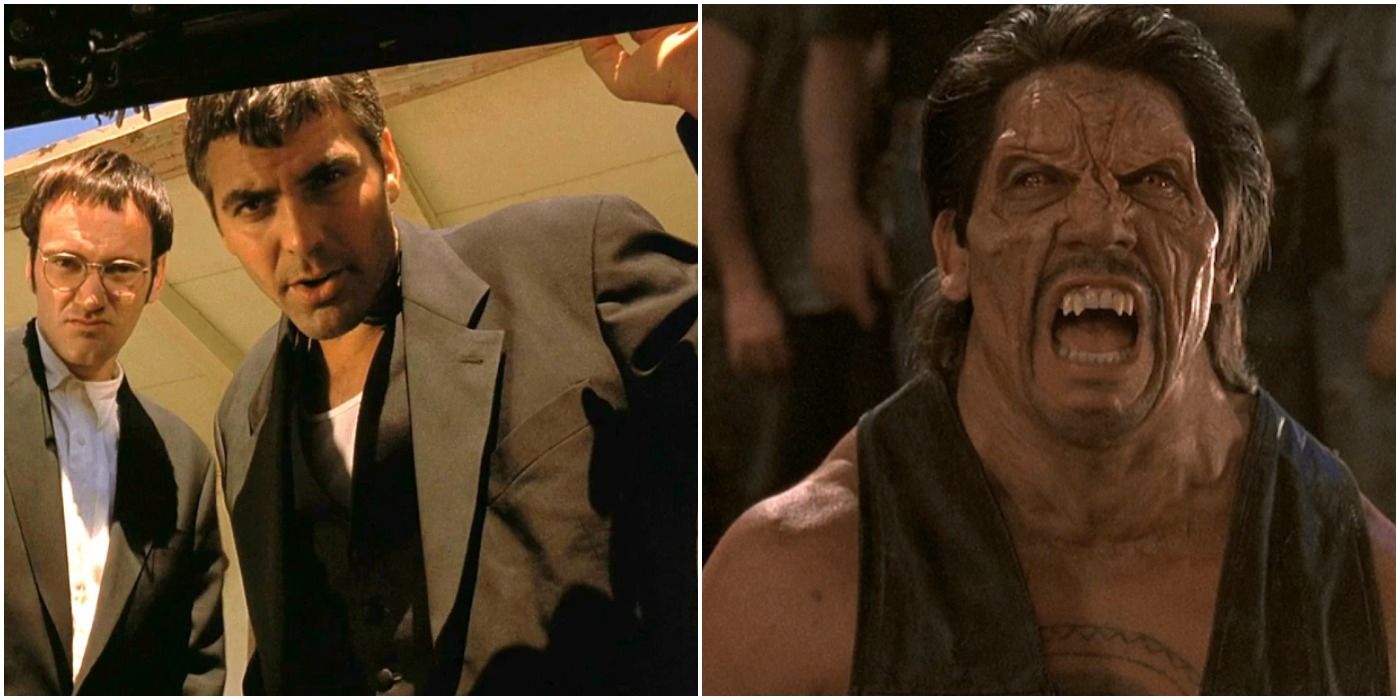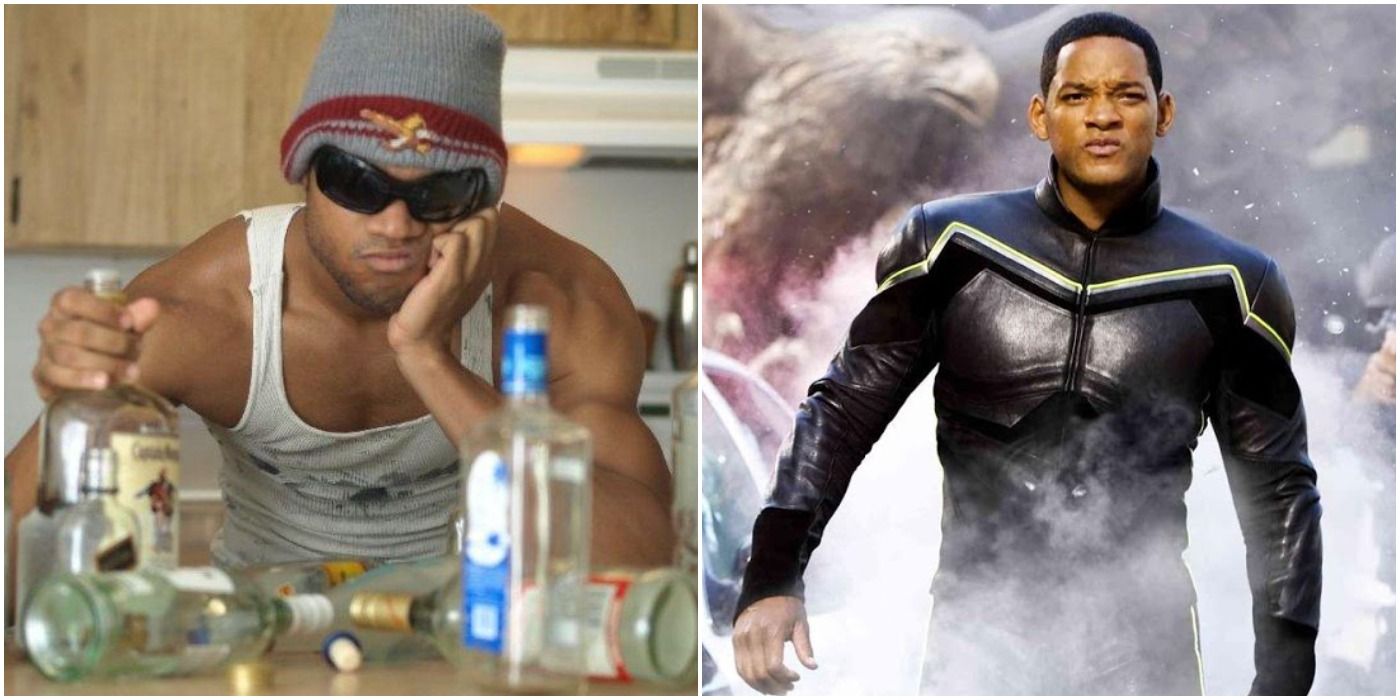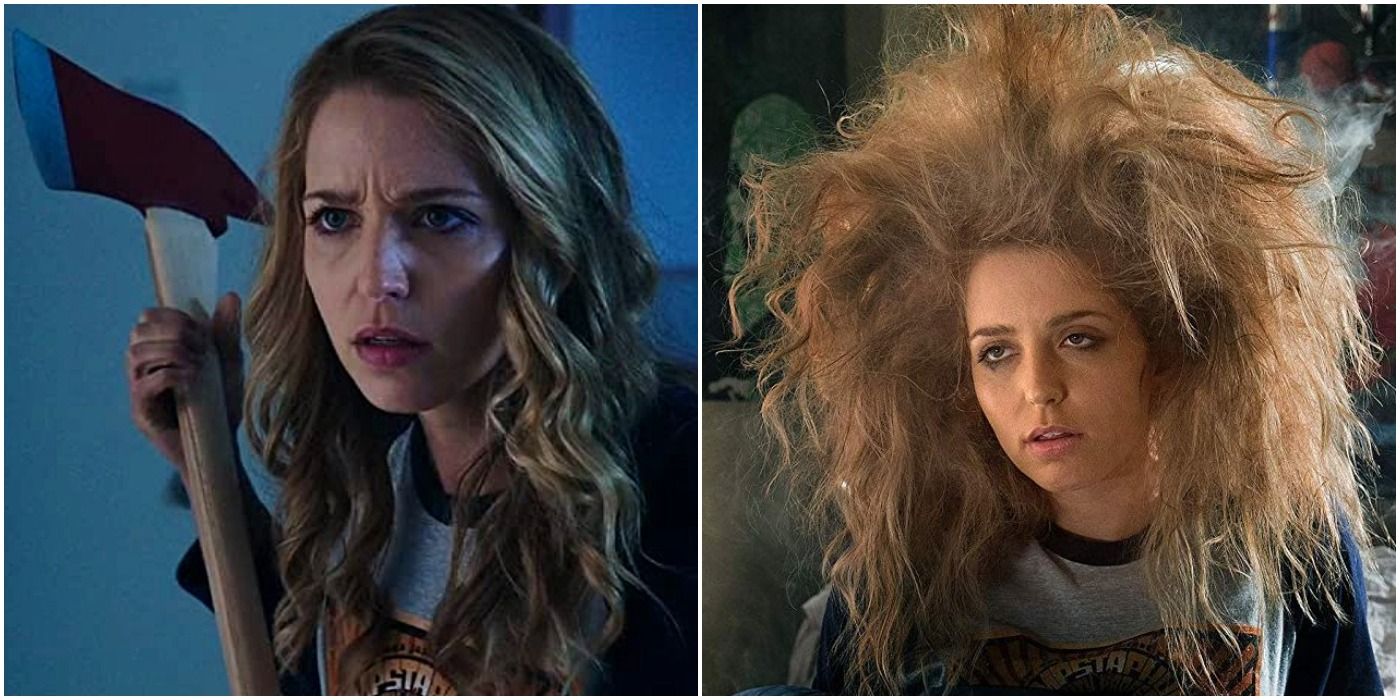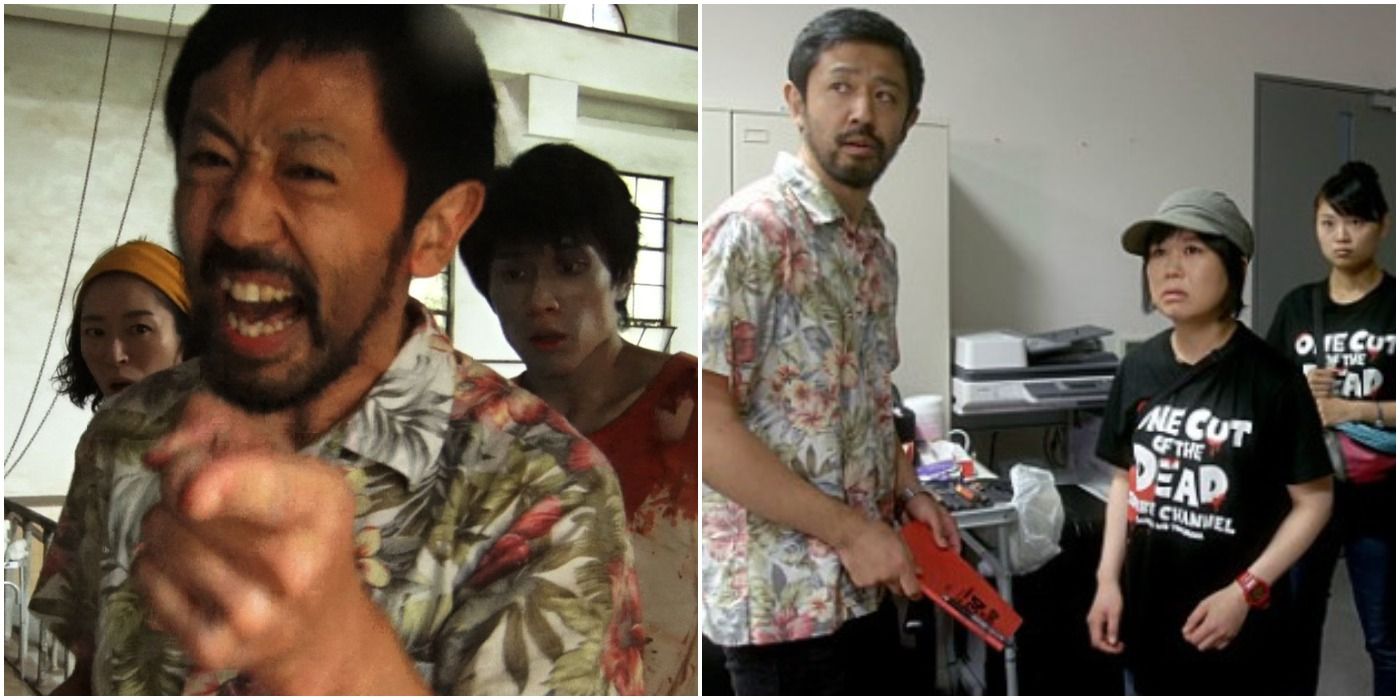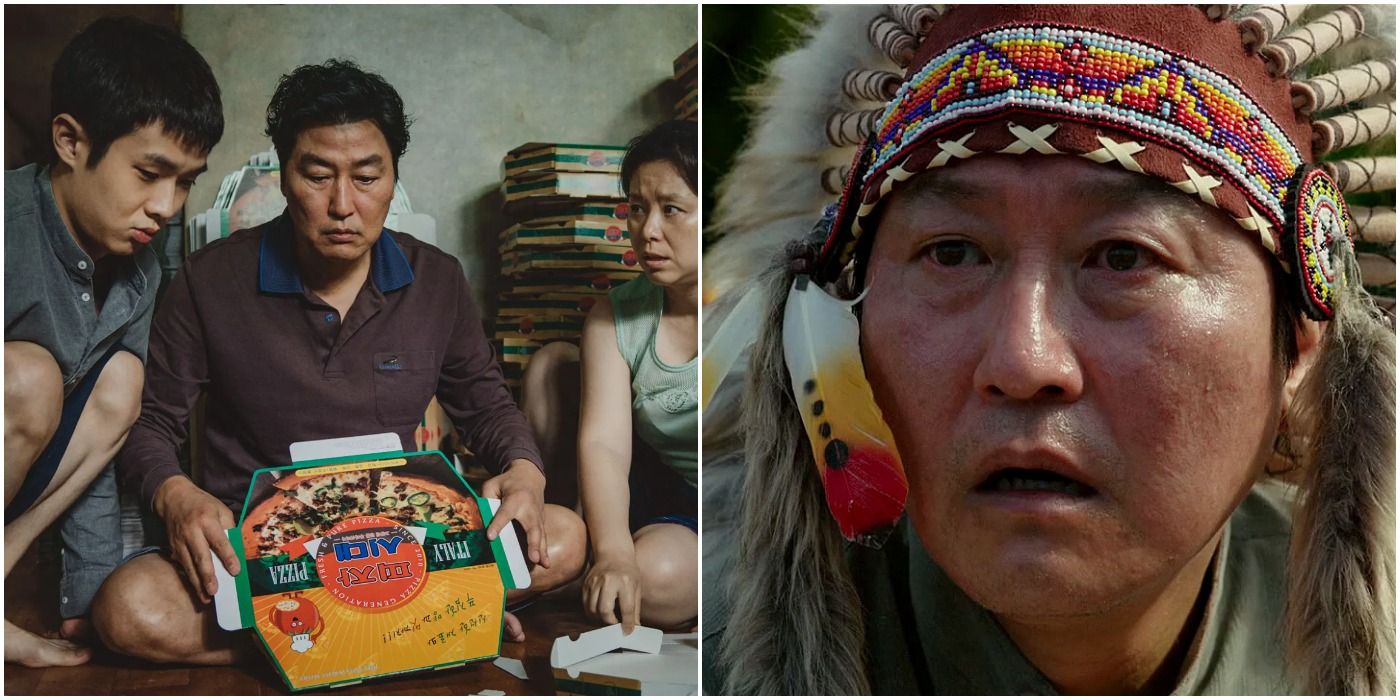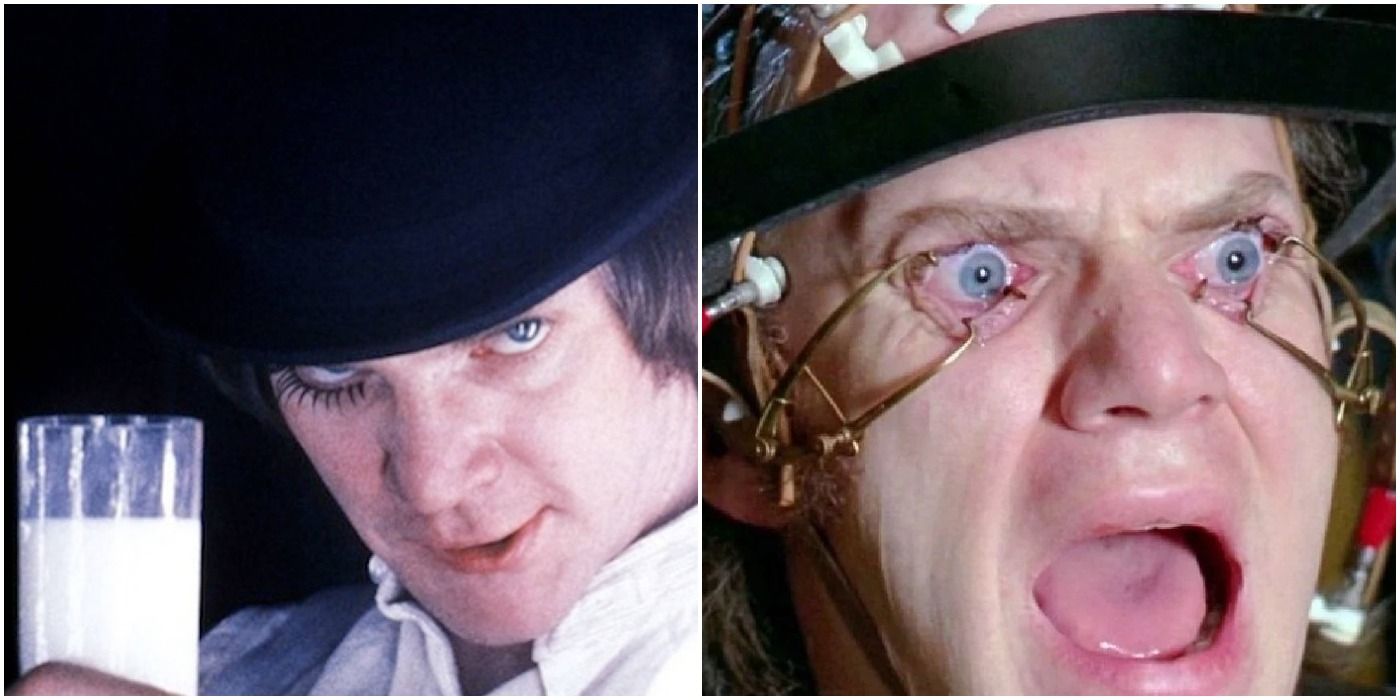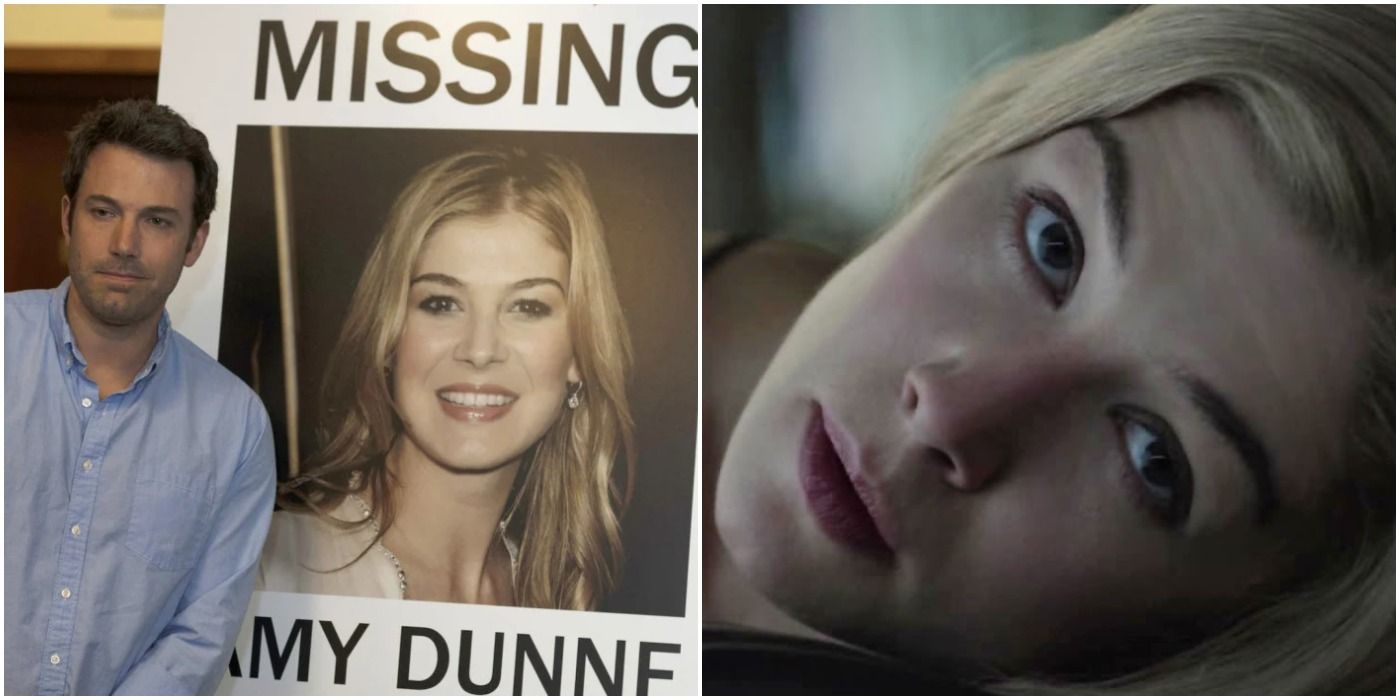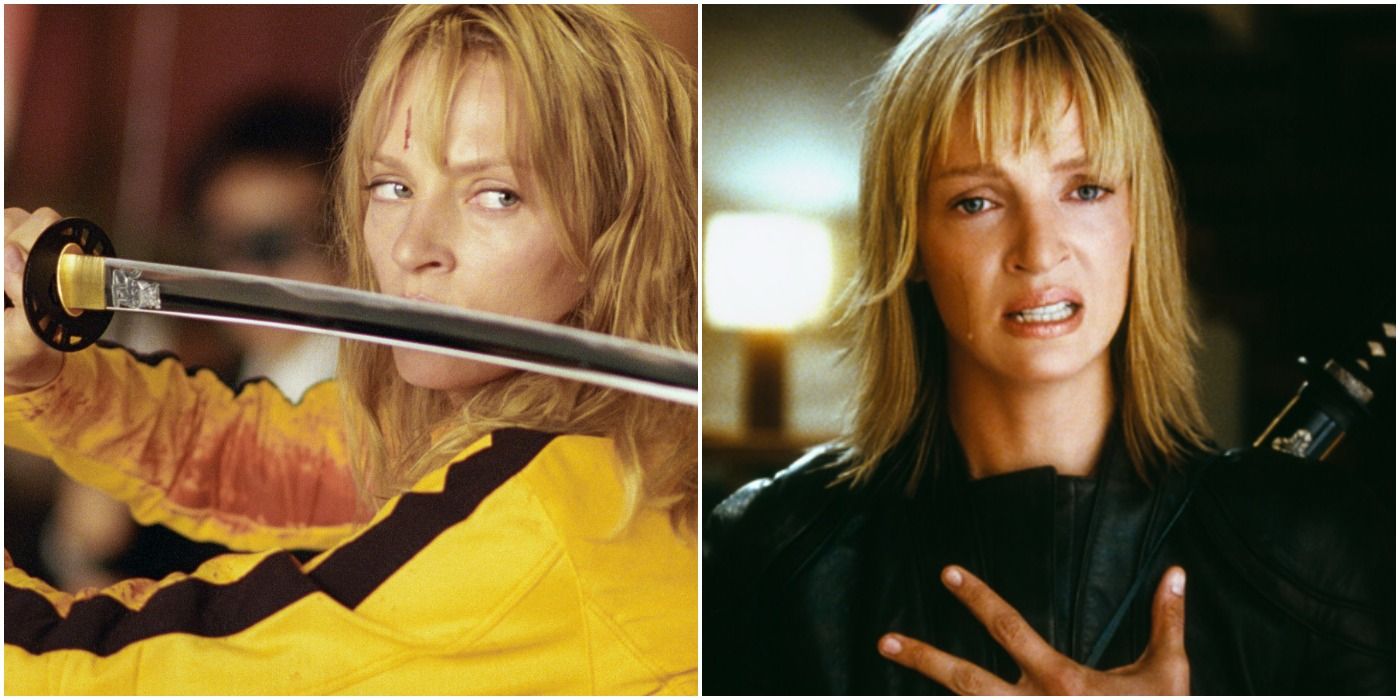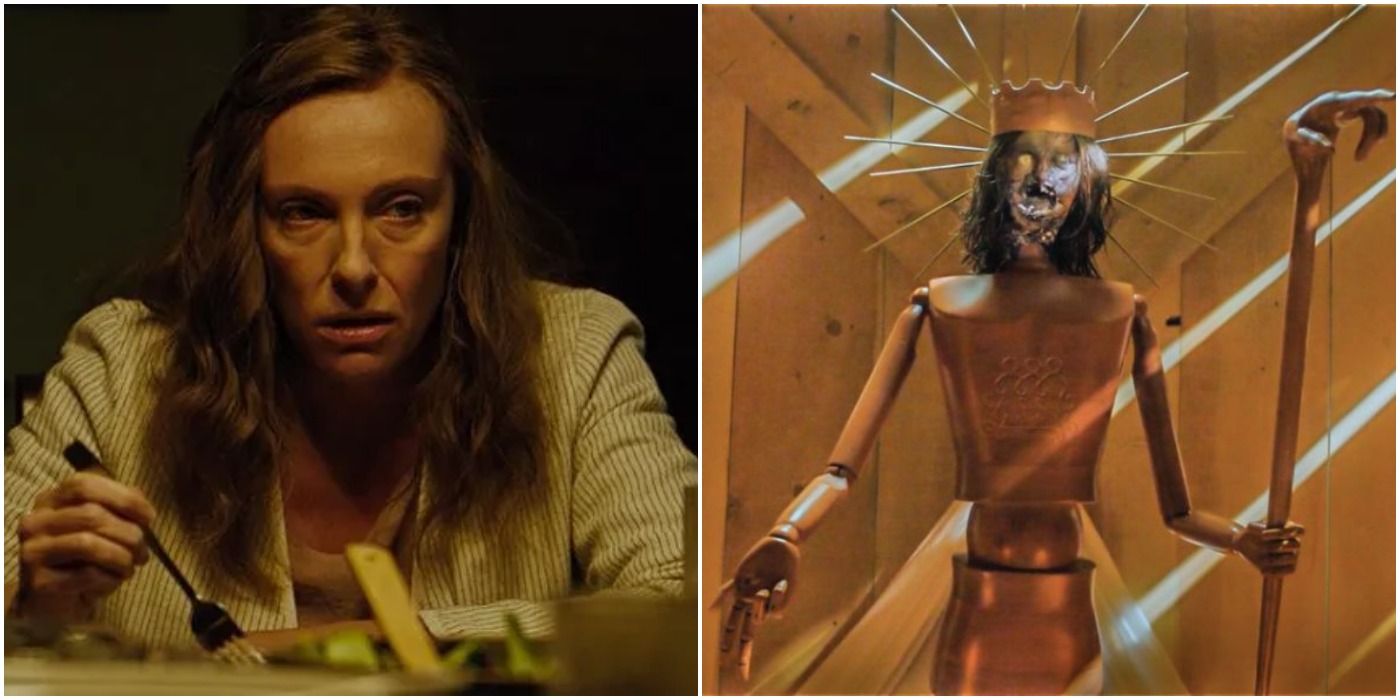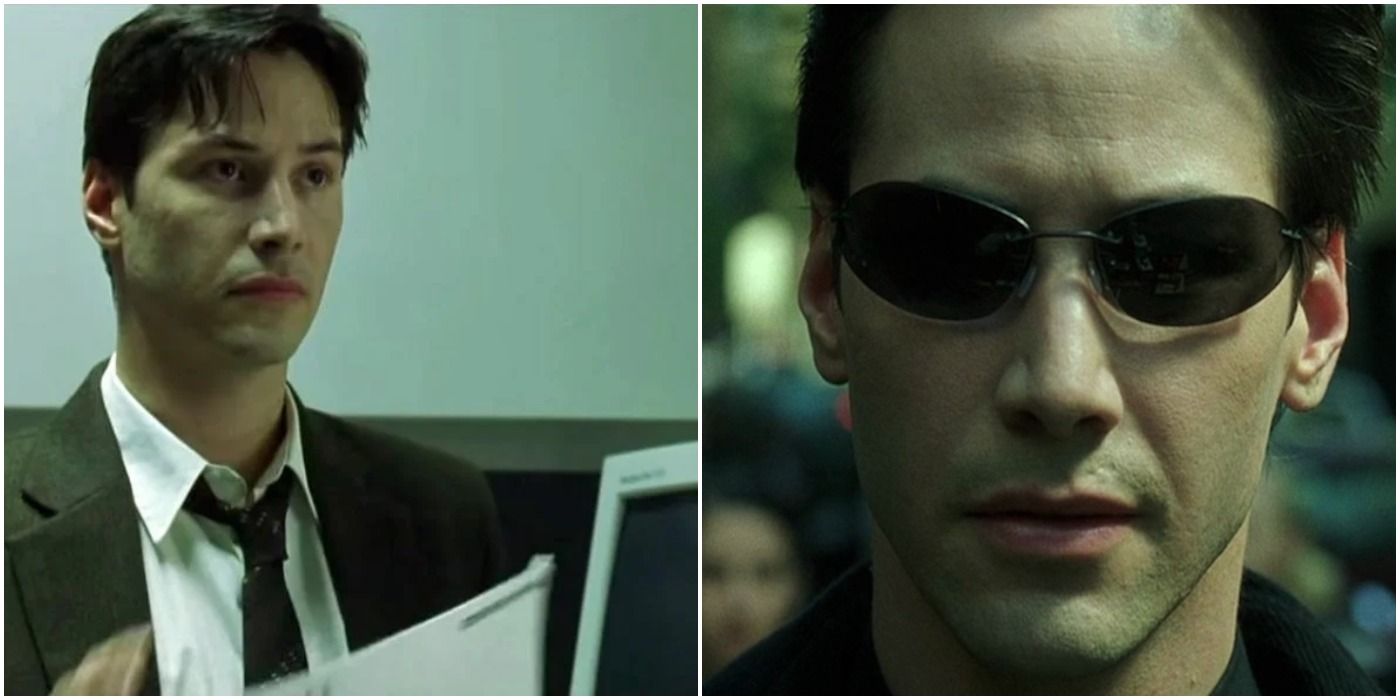Ever since Psycho killed off Marion Crane in the first act, then switched its focus to her sister, Lila, and killer, Norman, audiences excitedly looked forward to movies that suddenly changed their story at the halfway point.
This kind of plot twist is quite common in today's movies, but only a select few can pull off this plot device in a memorable fashion. This kind of twist isn't always well-received, but at least viewers never forgot about it.
WARNING: Spoilers ahead.
10 From Dusk Till Dawn's Crime Caper Was Interrupted By Vampires
Alongside Psycho and Predator, Robert Rodriguez's From Dusk Till Dawn is one of the most well-known movies to switch its plot halfway through. The first half played out like a typical Quentin Tarantino caper, where the Gecko Brothers kidnap a family during their escape to the border. However, they soon found themselves in a horror movie when night fell.
Without any warning, From Dusk Till Dawn dropped its seedy crime trappings at the halfway mark to become a trashy Rodriguez vampire movie. Everything from the action, filmmaking, and tone changed to fit the surprise vampire movie, and From Dusk Till Dawn reverted to its original crime caper self after all the vampires were slain.
9 Hancock Ditched Its Subversive Superhero Story For Generic Heroics
These days, Peter Berg's original superhero movie, Hancock, is known for its controversial halfway switch more than it's known for Will Smith playing a failed superhero. If the trailers and the first half of the film were to be believed, Hancock was a satire about an alcoholic and emotionally broken superhero. But then it became another generic superhero movie.
After John Hancock caused more trouble than good, a PR specialist he saved earlier repaid him by managing his comeback bid as a legitimate superhero. Whatever satire Hancock's opening promised was lost, and it gave way to a formulaic story about a superhero saving the day and being forced to choose between his duty and romance.
8 Happy Death Day 2U Quickly Became A Self-Parody
Christopher Landon's Happy Death Day was basically a slasher-themed remix of Groundhog Day, so it made sense that its sequel would follow the same set-up. This was true... at least for Happy Death Day 2U's first act. The sequel opened with Tree helping a friend with his own time loop problem, only for the sequel to become a multiverse story.
Not even 20 minutes in, Happy Death Day 2U retconned its predecessor's intentionally vague premise by revealing that an experimental quantum reactor caused the time loops. Tree gets thrown into an alternate reality that's basically a parody of the first movie, where she repeats previous plot beats, only now as part of a feature-length meta gag.
7 One Cut Of The Dead's Zombie Apocalypse Became A Comedic Film Shoot
If the first 30 or so minutes of Shinichiro Ueda's One Cut Of The Dead were taken out of context, it'd be indistinguishable from the multitude of low budget 'found footage' zombie movies that dominate the modern B-movie scene. This was intentional, since One Cut Of The Dead is really about filmmaking, not making a movie during a zombie apocalypse.
After the titular short movie's credits rolled, One Cut Of The Dead cut to the filmmakers developing the zombie flick a few days earlier. Here, it's revealed the movie was shot live, meaning that everything had to be done in one perfect take. The rest of One Cut Of The Dead showed how this was done, along with the comedic chaos that ensued.
6 Parasite Dropped Its Dark Comedy After The Basement Twist
When it began, Bong Joon-Ho's Parasite seemed like a darkly fun social satire where the blue-collar Kim family one-upped the oblivious and rich Park family. However, Parasite transformed from a comedy into a thriller the moment the Kim family discovered an underground bunker in the Parks' residence and discovered who was hiding there.
After the Parks encountered the house's other family, the humorous social commentary gave way to a bleak class war. The blue-collar families' infighting spelled doom for them and the aloof but not evil rich, sealing Parasite's hopeless ending and its dire warning of how the growing wealth gap will only make life worse for everyone.
5 A Clockwork Orange Showed The Consequences Of Individual & State Violence
When it started, Stanley Kubrick's A Clockwork Orange seemed like another example of the juvenile delinquent subgenre. Alex and his Droogs went around town attacking people or each other at random, with little to no pushback. But then Alex's friends betrayed him and left him to be arrested during a home invasion gone wrong.
From then on, A Clockwork Orange shifted from showing viewers the horrors of youth crime to warning them about authoritarians' overreach. The second half was basically a prison movie that ended with Alex being mentally conditioned by the government's inhumane rehabilitation program, his failure to reintegrate into society, and his refusal to change his ways.
4 Gone Girl's Missing Persons Case Became A Femme Fatale's Revenge
Gone Girl started out like any other David Fincher thriller, meaning it was a Noir-inspired mystery where an imperfect protagonist (Nick, in this case) struggled to do what was right in the face of a grim tragedy. However, Nick's efforts to prove he didn't murder his wife were pointless when Gone Girl revealed Amy was actually alive.
As it turns out, Amy framed her husband for her murder as payback for his affair. If Gone Girl started like a true-crime reenactment starring Nick, its second half was a procedural revenge story starring a femme fatale. By the end, everything Gone Girl established was flipped upside down, making it hard to determine who was telling the truth.
3 Kill Bill's Pulpy Revenge Ended With A Somber Meditation On Its Emptiness
Though it was split into two volumes, Quentin Tarantino's Kill Bill was always meant to be one big epic. Watching The Bride's revenge against Bill and the DVAS – uncut through the four-hour Kill Bill: The Whole Bloody Affair or a marathon – doesn't just tell an uninterrupted story, but shows how her warpath came in two distinct parts.
If Volume 1 was the kind of clever and schlocky tribute to wuxia cinema that anyone would expect Tarantino to make, Volume 2 was a contemplative reflection on the prior bloodshed. Kill Bill's first half established how awesome The Bride was as an old-school action hero, but the second half deconstructed this archetype before testing her human side.
2 Hereditary's Domestic Drama Gave Way To A Demonic Cult
As overbearing as its atmosphere and visuals were, Ari Aster's Hereditary could easily pass for a dark domestic drama based on its first half. However, the Graham family's everyday troubles quickly became a nightmarish descent into death and despair after Charlie was beheaded in a speeding incident gone horrifically wrong.
After Charlie's death, Hereditary transformed into a supernaturally-charged horror movie about a cult that worshipped the demon Paimon. The cult's inclusion doesn't diminish the movie's quality or themes of generational trauma and grief, but the way it tackles these ideas greatly differs from Hereditary's more subdued and grounded opening half.
1 The Matrix's Cyberpunk Rebellion Started With A Grounded Office Thriller
Given how almost everyone is familiar with the Wachowskis' The Matrix, it may be hard to remember when its cyberpunk reality was actually a twist. The Matrix did this by hiding everything about how the movie's world was just a simulation, instead marketing the movie as a typical '90s thriller about mundane corporate life with a hacker slant.
The Matrix opened with the unremarkable office worker Thomas Anderson finding himself in a conspiracy involving hackers and clandestine government agencies, only to wake up in the real, machine-ruled world. From here, the movie became the action-packed origin of Neo: mankind's prophesied messiah who'd end the war between man and machine.

